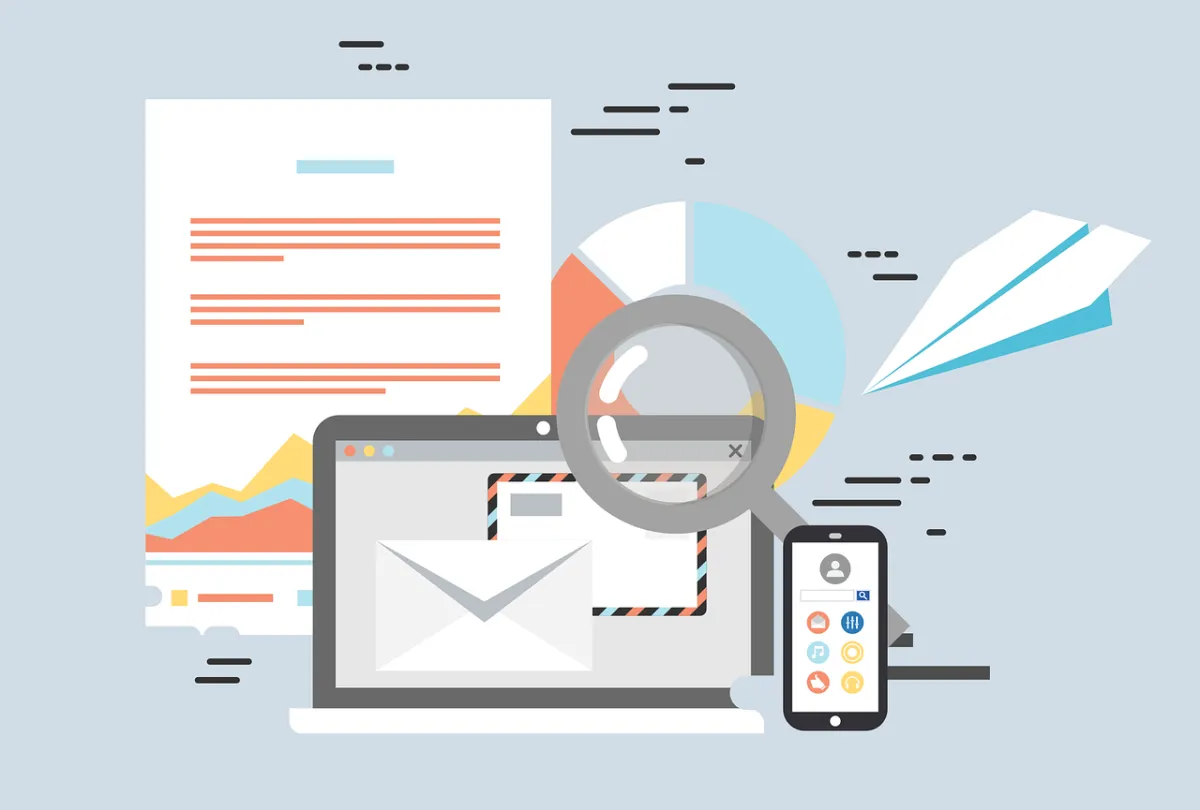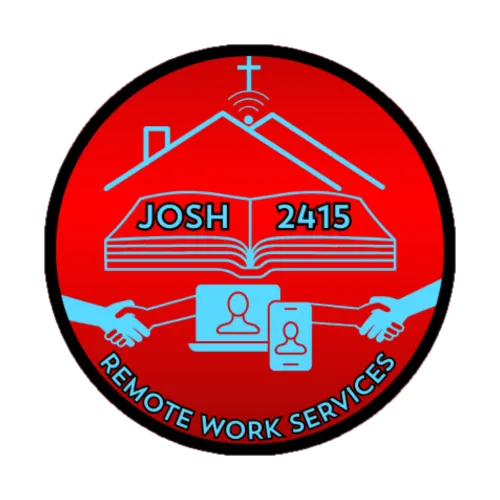Explore the latest industry trends, expert tips, and valuable insights in our blog. Stay informed and inspired with our informative articles and resources.

Navigating the Virtual Landscape: Tips for Effective Email Support Management
In the digital age, email has remained a cornerstone of customer communication, serving as a vital channel for inquiries, feedback, and support requests. For businesses operating in today's virtual landscape, effectively managing email support is crucial for maintaining customer satisfaction and fostering positive relationships. Josh2415 Remote Workforce Services understands the importance of efficient email support management and offers valuable tips for navigating this virtual landscape.
Prioritize Prompt Responses:
Timeliness is key when it comes to email support. Aim to respond to customer inquiries promptly, ideally within 24 hours or less. Establishing a reputation for quick and reliable responses demonstrates professionalism and enhances customer satisfaction. Implementing automated acknowledgment emails can reassure customers that their inquiries have been received and are being addressed.
Create Clear and Concise Responses:
When crafting email responses, strive for clarity and conciseness. Clearly address the customer's query or concern, providing relevant information and solutions. Use concise language and bullet points to break down complex information, making it easier for customers to understand. Avoid jargon or technical terms that may confuse or overwhelm recipients.
Personalize Communication:
Personalization goes a long way in building rapport with customers. Address customers by their name and tailor responses to their specific needs or circumstances. Acknowledge any previous interactions or concerns they may have raised, demonstrating attentiveness and empathy. Personalized communication fosters a sense of connection and shows customers that their individual needs are valued.
Implement an Organized Ticketing System:
To effectively manage email support, implement an organized ticketing system that categorizes and prioritizes incoming inquiries. Assign tickets to appropriate team members based on expertise or specialization, ensuring prompt and efficient resolution. Utilize tags or labels to track the status of each ticket and monitor response times to identify areas for improvement.
Continuously Train and Develop Staff:
Invest in ongoing training and development for email support staff to ensure they are equipped with the knowledge and skills needed to provide exceptional service. Provide training on effective communication techniques, problem-solving strategies, and product knowledge. Encourage team collaboration and knowledge sharing to foster a culture of continuous improvement.
Monitor and Analyze Performance Metrics:
Regularly monitor and analyze performance metrics related to email support, such as response times, resolution rates, and customer satisfaction scores. Identify trends and patterns to pinpoint areas of strength and areas for improvement. Use insights gained from data analysis to refine processes, optimize resource allocation, and enhance overall service quality.
In conclusion, effective email support management is essential for businesses navigating the virtual landscape. By prioritizing prompt responses, creating clear and concise communication, personalizing interactions, implementing organized ticketing systems, investing in staff training, and monitoring performance metrics, businesses can optimize their email support operations and deliver exceptional customer experiences. With the expertise and guidance of Josh2415 Remote Workforce Services, businesses can navigate the complexities of email support management with confidence and achieve success in the digital age.

Navigating the Virtual Landscape: Tips for Effective Email Support Management
In the digital age, email has remained a cornerstone of customer communication, serving as a vital channel for inquiries, feedback, and support requests. For businesses operating in today's virtual landscape, effectively managing email support is crucial for maintaining customer satisfaction and fostering positive relationships. Josh2415 Remote Workforce Services understands the importance of efficient email support management and offers valuable tips for navigating this virtual landscape.
Prioritize Prompt Responses:
Timeliness is key when it comes to email support. Aim to respond to customer inquiries promptly, ideally within 24 hours or less. Establishing a reputation for quick and reliable responses demonstrates professionalism and enhances customer satisfaction. Implementing automated acknowledgment emails can reassure customers that their inquiries have been received and are being addressed.
Create Clear and Concise Responses:
When crafting email responses, strive for clarity and conciseness. Clearly address the customer's query or concern, providing relevant information and solutions. Use concise language and bullet points to break down complex information, making it easier for customers to understand. Avoid jargon or technical terms that may confuse or overwhelm recipients.
Personalize Communication:
Personalization goes a long way in building rapport with customers. Address customers by their name and tailor responses to their specific needs or circumstances. Acknowledge any previous interactions or concerns they may have raised, demonstrating attentiveness and empathy. Personalized communication fosters a sense of connection and shows customers that their individual needs are valued.
Implement an Organized Ticketing System:
To effectively manage email support, implement an organized ticketing system that categorizes and prioritizes incoming inquiries. Assign tickets to appropriate team members based on expertise or specialization, ensuring prompt and efficient resolution. Utilize tags or labels to track the status of each ticket and monitor response times to identify areas for improvement.
Continuously Train and Develop Staff:
Invest in ongoing training and development for email support staff to ensure they are equipped with the knowledge and skills needed to provide exceptional service. Provide training on effective communication techniques, problem-solving strategies, and product knowledge. Encourage team collaboration and knowledge sharing to foster a culture of continuous improvement.
Monitor and Analyze Performance Metrics:
Regularly monitor and analyze performance metrics related to email support, such as response times, resolution rates, and customer satisfaction scores. Identify trends and patterns to pinpoint areas of strength and areas for improvement. Use insights gained from data analysis to refine processes, optimize resource allocation, and enhance overall service quality.
In conclusion, effective email support management is essential for businesses navigating the virtual landscape. By prioritizing prompt responses, creating clear and concise communication, personalizing interactions, implementing organized ticketing systems, investing in staff training, and monitoring performance metrics, businesses can optimize their email support operations and deliver exceptional customer experiences. With the expertise and guidance of Josh2415 Remote Workforce Services, businesses can navigate the complexities of email support management with confidence and achieve success in the digital age.

Navigating the Virtual Landscape: Tips for Effective Email Support Management
In the digital age, email has remained a cornerstone of customer communication, serving as a vital channel for inquiries, feedback, and support requests. For businesses operating in today's virtual landscape, effectively managing email support is crucial for maintaining customer satisfaction and fostering positive relationships. Josh2415 Remote Workforce Services understands the importance of efficient email support management and offers valuable tips for navigating this virtual landscape.
Prioritize Prompt Responses:
Timeliness is key when it comes to email support. Aim to respond to customer inquiries promptly, ideally within 24 hours or less. Establishing a reputation for quick and reliable responses demonstrates professionalism and enhances customer satisfaction. Implementing automated acknowledgment emails can reassure customers that their inquiries have been received and are being addressed.
Create Clear and Concise Responses:
When crafting email responses, strive for clarity and conciseness. Clearly address the customer's query or concern, providing relevant information and solutions. Use concise language and bullet points to break down complex information, making it easier for customers to understand. Avoid jargon or technical terms that may confuse or overwhelm recipients.
Personalize Communication:
Personalization goes a long way in building rapport with customers. Address customers by their name and tailor responses to their specific needs or circumstances. Acknowledge any previous interactions or concerns they may have raised, demonstrating attentiveness and empathy. Personalized communication fosters a sense of connection and shows customers that their individual needs are valued.
Implement an Organized Ticketing System:
To effectively manage email support, implement an organized ticketing system that categorizes and prioritizes incoming inquiries. Assign tickets to appropriate team members based on expertise or specialization, ensuring prompt and efficient resolution. Utilize tags or labels to track the status of each ticket and monitor response times to identify areas for improvement.
Continuously Train and Develop Staff:
Invest in ongoing training and development for email support staff to ensure they are equipped with the knowledge and skills needed to provide exceptional service. Provide training on effective communication techniques, problem-solving strategies, and product knowledge. Encourage team collaboration and knowledge sharing to foster a culture of continuous improvement.
Monitor and Analyze Performance Metrics:
Regularly monitor and analyze performance metrics related to email support, such as response times, resolution rates, and customer satisfaction scores. Identify trends and patterns to pinpoint areas of strength and areas for improvement. Use insights gained from data analysis to refine processes, optimize resource allocation, and enhance overall service quality.
In conclusion, effective email support management is essential for businesses navigating the virtual landscape. By prioritizing prompt responses, creating clear and concise communication, personalizing interactions, implementing organized ticketing systems, investing in staff training, and monitoring performance metrics, businesses can optimize their email support operations and deliver exceptional customer experiences. With the expertise and guidance of Josh2415 Remote Workforce Services, businesses can navigate the complexities of email support management with confidence and achieve success in the digital age.

Navigating the Virtual Landscape: Tips for Effective Email Support Management
In the digital age, email has remained a cornerstone of customer communication, serving as a vital channel for inquiries, feedback, and support requests. For businesses operating in today's virtual landscape, effectively managing email support is crucial for maintaining customer satisfaction and fostering positive relationships. Josh2415 Remote Workforce Services understands the importance of efficient email support management and offers valuable tips for navigating this virtual landscape.
Prioritize Prompt Responses:
Timeliness is key when it comes to email support. Aim to respond to customer inquiries promptly, ideally within 24 hours or less. Establishing a reputation for quick and reliable responses demonstrates professionalism and enhances customer satisfaction. Implementing automated acknowledgment emails can reassure customers that their inquiries have been received and are being addressed.
Create Clear and Concise Responses:
When crafting email responses, strive for clarity and conciseness. Clearly address the customer's query or concern, providing relevant information and solutions. Use concise language and bullet points to break down complex information, making it easier for customers to understand. Avoid jargon or technical terms that may confuse or overwhelm recipients.
Personalize Communication:
Personalization goes a long way in building rapport with customers. Address customers by their name and tailor responses to their specific needs or circumstances. Acknowledge any previous interactions or concerns they may have raised, demonstrating attentiveness and empathy. Personalized communication fosters a sense of connection and shows customers that their individual needs are valued.
Implement an Organized Ticketing System:
To effectively manage email support, implement an organized ticketing system that categorizes and prioritizes incoming inquiries. Assign tickets to appropriate team members based on expertise or specialization, ensuring prompt and efficient resolution. Utilize tags or labels to track the status of each ticket and monitor response times to identify areas for improvement.
Continuously Train and Develop Staff:
Invest in ongoing training and development for email support staff to ensure they are equipped with the knowledge and skills needed to provide exceptional service. Provide training on effective communication techniques, problem-solving strategies, and product knowledge. Encourage team collaboration and knowledge sharing to foster a culture of continuous improvement.
Monitor and Analyze Performance Metrics:
Regularly monitor and analyze performance metrics related to email support, such as response times, resolution rates, and customer satisfaction scores. Identify trends and patterns to pinpoint areas of strength and areas for improvement. Use insights gained from data analysis to refine processes, optimize resource allocation, and enhance overall service quality.
In conclusion, effective email support management is essential for businesses navigating the virtual landscape. By prioritizing prompt responses, creating clear and concise communication, personalizing interactions, implementing organized ticketing systems, investing in staff training, and monitoring performance metrics, businesses can optimize their email support operations and deliver exceptional customer experiences. With the expertise and guidance of Josh2415 Remote Workforce Services, businesses can navigate the complexities of email support management with confidence and achieve success in the digital age.

Navigating the Virtual Landscape: Tips for Effective Email Support Management
In the digital age, email has remained a cornerstone of customer communication, serving as a vital channel for inquiries, feedback, and support requests. For businesses operating in today's virtual landscape, effectively managing email support is crucial for maintaining customer satisfaction and fostering positive relationships. Josh2415 Remote Workforce Services understands the importance of efficient email support management and offers valuable tips for navigating this virtual landscape.
Prioritize Prompt Responses:
Timeliness is key when it comes to email support. Aim to respond to customer inquiries promptly, ideally within 24 hours or less. Establishing a reputation for quick and reliable responses demonstrates professionalism and enhances customer satisfaction. Implementing automated acknowledgment emails can reassure customers that their inquiries have been received and are being addressed.
Create Clear and Concise Responses:
When crafting email responses, strive for clarity and conciseness. Clearly address the customer's query or concern, providing relevant information and solutions. Use concise language and bullet points to break down complex information, making it easier for customers to understand. Avoid jargon or technical terms that may confuse or overwhelm recipients.
Personalize Communication:
Personalization goes a long way in building rapport with customers. Address customers by their name and tailor responses to their specific needs or circumstances. Acknowledge any previous interactions or concerns they may have raised, demonstrating attentiveness and empathy. Personalized communication fosters a sense of connection and shows customers that their individual needs are valued.
Implement an Organized Ticketing System:
To effectively manage email support, implement an organized ticketing system that categorizes and prioritizes incoming inquiries. Assign tickets to appropriate team members based on expertise or specialization, ensuring prompt and efficient resolution. Utilize tags or labels to track the status of each ticket and monitor response times to identify areas for improvement.
Continuously Train and Develop Staff:
Invest in ongoing training and development for email support staff to ensure they are equipped with the knowledge and skills needed to provide exceptional service. Provide training on effective communication techniques, problem-solving strategies, and product knowledge. Encourage team collaboration and knowledge sharing to foster a culture of continuous improvement.
Monitor and Analyze Performance Metrics:
Regularly monitor and analyze performance metrics related to email support, such as response times, resolution rates, and customer satisfaction scores. Identify trends and patterns to pinpoint areas of strength and areas for improvement. Use insights gained from data analysis to refine processes, optimize resource allocation, and enhance overall service quality.
In conclusion, effective email support management is essential for businesses navigating the virtual landscape. By prioritizing prompt responses, creating clear and concise communication, personalizing interactions, implementing organized ticketing systems, investing in staff training, and monitoring performance metrics, businesses can optimize their email support operations and deliver exceptional customer experiences. With the expertise and guidance of Josh2415 Remote Workforce Services, businesses can navigate the complexities of email support management with confidence and achieve success in the digital age.

Navigating the Virtual Landscape: Tips for Effective Email Support Management
In the digital age, email has remained a cornerstone of customer communication, serving as a vital channel for inquiries, feedback, and support requests. For businesses operating in today's virtual landscape, effectively managing email support is crucial for maintaining customer satisfaction and fostering positive relationships. Josh2415 Remote Workforce Services understands the importance of efficient email support management and offers valuable tips for navigating this virtual landscape.
Prioritize Prompt Responses:
Timeliness is key when it comes to email support. Aim to respond to customer inquiries promptly, ideally within 24 hours or less. Establishing a reputation for quick and reliable responses demonstrates professionalism and enhances customer satisfaction. Implementing automated acknowledgment emails can reassure customers that their inquiries have been received and are being addressed.
Create Clear and Concise Responses:
When crafting email responses, strive for clarity and conciseness. Clearly address the customer's query or concern, providing relevant information and solutions. Use concise language and bullet points to break down complex information, making it easier for customers to understand. Avoid jargon or technical terms that may confuse or overwhelm recipients.
Personalize Communication:
Personalization goes a long way in building rapport with customers. Address customers by their name and tailor responses to their specific needs or circumstances. Acknowledge any previous interactions or concerns they may have raised, demonstrating attentiveness and empathy. Personalized communication fosters a sense of connection and shows customers that their individual needs are valued.
Implement an Organized Ticketing System:
To effectively manage email support, implement an organized ticketing system that categorizes and prioritizes incoming inquiries. Assign tickets to appropriate team members based on expertise or specialization, ensuring prompt and efficient resolution. Utilize tags or labels to track the status of each ticket and monitor response times to identify areas for improvement.
Continuously Train and Develop Staff:
Invest in ongoing training and development for email support staff to ensure they are equipped with the knowledge and skills needed to provide exceptional service. Provide training on effective communication techniques, problem-solving strategies, and product knowledge. Encourage team collaboration and knowledge sharing to foster a culture of continuous improvement.
Monitor and Analyze Performance Metrics:
Regularly monitor and analyze performance metrics related to email support, such as response times, resolution rates, and customer satisfaction scores. Identify trends and patterns to pinpoint areas of strength and areas for improvement. Use insights gained from data analysis to refine processes, optimize resource allocation, and enhance overall service quality.
In conclusion, effective email support management is essential for businesses navigating the virtual landscape. By prioritizing prompt responses, creating clear and concise communication, personalizing interactions, implementing organized ticketing systems, investing in staff training, and monitoring performance metrics, businesses can optimize their email support operations and deliver exceptional customer experiences. With the expertise and guidance of Josh2415 Remote Workforce Services, businesses can navigate the complexities of email support management with confidence and achieve success in the digital age.

Navigating the Virtual Landscape: Tips for Effective Email Support Management
In the digital age, email has remained a cornerstone of customer communication, serving as a vital channel for inquiries, feedback, and support requests. For businesses operating in today's virtual landscape, effectively managing email support is crucial for maintaining customer satisfaction and fostering positive relationships. Josh2415 Remote Workforce Services understands the importance of efficient email support management and offers valuable tips for navigating this virtual landscape.
Prioritize Prompt Responses:
Timeliness is key when it comes to email support. Aim to respond to customer inquiries promptly, ideally within 24 hours or less. Establishing a reputation for quick and reliable responses demonstrates professionalism and enhances customer satisfaction. Implementing automated acknowledgment emails can reassure customers that their inquiries have been received and are being addressed.
Create Clear and Concise Responses:
When crafting email responses, strive for clarity and conciseness. Clearly address the customer's query or concern, providing relevant information and solutions. Use concise language and bullet points to break down complex information, making it easier for customers to understand. Avoid jargon or technical terms that may confuse or overwhelm recipients.
Personalize Communication:
Personalization goes a long way in building rapport with customers. Address customers by their name and tailor responses to their specific needs or circumstances. Acknowledge any previous interactions or concerns they may have raised, demonstrating attentiveness and empathy. Personalized communication fosters a sense of connection and shows customers that their individual needs are valued.
Implement an Organized Ticketing System:
To effectively manage email support, implement an organized ticketing system that categorizes and prioritizes incoming inquiries. Assign tickets to appropriate team members based on expertise or specialization, ensuring prompt and efficient resolution. Utilize tags or labels to track the status of each ticket and monitor response times to identify areas for improvement.
Continuously Train and Develop Staff:
Invest in ongoing training and development for email support staff to ensure they are equipped with the knowledge and skills needed to provide exceptional service. Provide training on effective communication techniques, problem-solving strategies, and product knowledge. Encourage team collaboration and knowledge sharing to foster a culture of continuous improvement.
Monitor and Analyze Performance Metrics:
Regularly monitor and analyze performance metrics related to email support, such as response times, resolution rates, and customer satisfaction scores. Identify trends and patterns to pinpoint areas of strength and areas for improvement. Use insights gained from data analysis to refine processes, optimize resource allocation, and enhance overall service quality.
In conclusion, effective email support management is essential for businesses navigating the virtual landscape. By prioritizing prompt responses, creating clear and concise communication, personalizing interactions, implementing organized ticketing systems, investing in staff training, and monitoring performance metrics, businesses can optimize their email support operations and deliver exceptional customer experiences. With the expertise and guidance of Josh2415 Remote Workforce Services, businesses can navigate the complexities of email support management with confidence and achieve success in the digital age.

Navigating the Virtual Landscape: Tips for Effective Email Support Management
In the digital age, email has remained a cornerstone of customer communication, serving as a vital channel for inquiries, feedback, and support requests. For businesses operating in today's virtual landscape, effectively managing email support is crucial for maintaining customer satisfaction and fostering positive relationships. Josh2415 Remote Workforce Services understands the importance of efficient email support management and offers valuable tips for navigating this virtual landscape.
Prioritize Prompt Responses:
Timeliness is key when it comes to email support. Aim to respond to customer inquiries promptly, ideally within 24 hours or less. Establishing a reputation for quick and reliable responses demonstrates professionalism and enhances customer satisfaction. Implementing automated acknowledgment emails can reassure customers that their inquiries have been received and are being addressed.
Create Clear and Concise Responses:
When crafting email responses, strive for clarity and conciseness. Clearly address the customer's query or concern, providing relevant information and solutions. Use concise language and bullet points to break down complex information, making it easier for customers to understand. Avoid jargon or technical terms that may confuse or overwhelm recipients.
Personalize Communication:
Personalization goes a long way in building rapport with customers. Address customers by their name and tailor responses to their specific needs or circumstances. Acknowledge any previous interactions or concerns they may have raised, demonstrating attentiveness and empathy. Personalized communication fosters a sense of connection and shows customers that their individual needs are valued.
Implement an Organized Ticketing System:
To effectively manage email support, implement an organized ticketing system that categorizes and prioritizes incoming inquiries. Assign tickets to appropriate team members based on expertise or specialization, ensuring prompt and efficient resolution. Utilize tags or labels to track the status of each ticket and monitor response times to identify areas for improvement.
Continuously Train and Develop Staff:
Invest in ongoing training and development for email support staff to ensure they are equipped with the knowledge and skills needed to provide exceptional service. Provide training on effective communication techniques, problem-solving strategies, and product knowledge. Encourage team collaboration and knowledge sharing to foster a culture of continuous improvement.
Monitor and Analyze Performance Metrics:
Regularly monitor and analyze performance metrics related to email support, such as response times, resolution rates, and customer satisfaction scores. Identify trends and patterns to pinpoint areas of strength and areas for improvement. Use insights gained from data analysis to refine processes, optimize resource allocation, and enhance overall service quality.
In conclusion, effective email support management is essential for businesses navigating the virtual landscape. By prioritizing prompt responses, creating clear and concise communication, personalizing interactions, implementing organized ticketing systems, investing in staff training, and monitoring performance metrics, businesses can optimize their email support operations and deliver exceptional customer experiences. With the expertise and guidance of Josh2415 Remote Workforce Services, businesses can navigate the complexities of email support management with confidence and achieve success in the digital age.

Have questions or need assistance? Call us Now! Get in touch with our team for expert support and guidance. We're here to help you every step of the way.

Unlock personalized solutions tailored to your needs. Schedule a consultation today and take the first step towards financial freedom
+639213301932
VIBER
+639213301932
QUICK LINKS
SOCIAL MEDIA
© Josh2415 Remote Workforce Services 2024 All Rights Reserved

